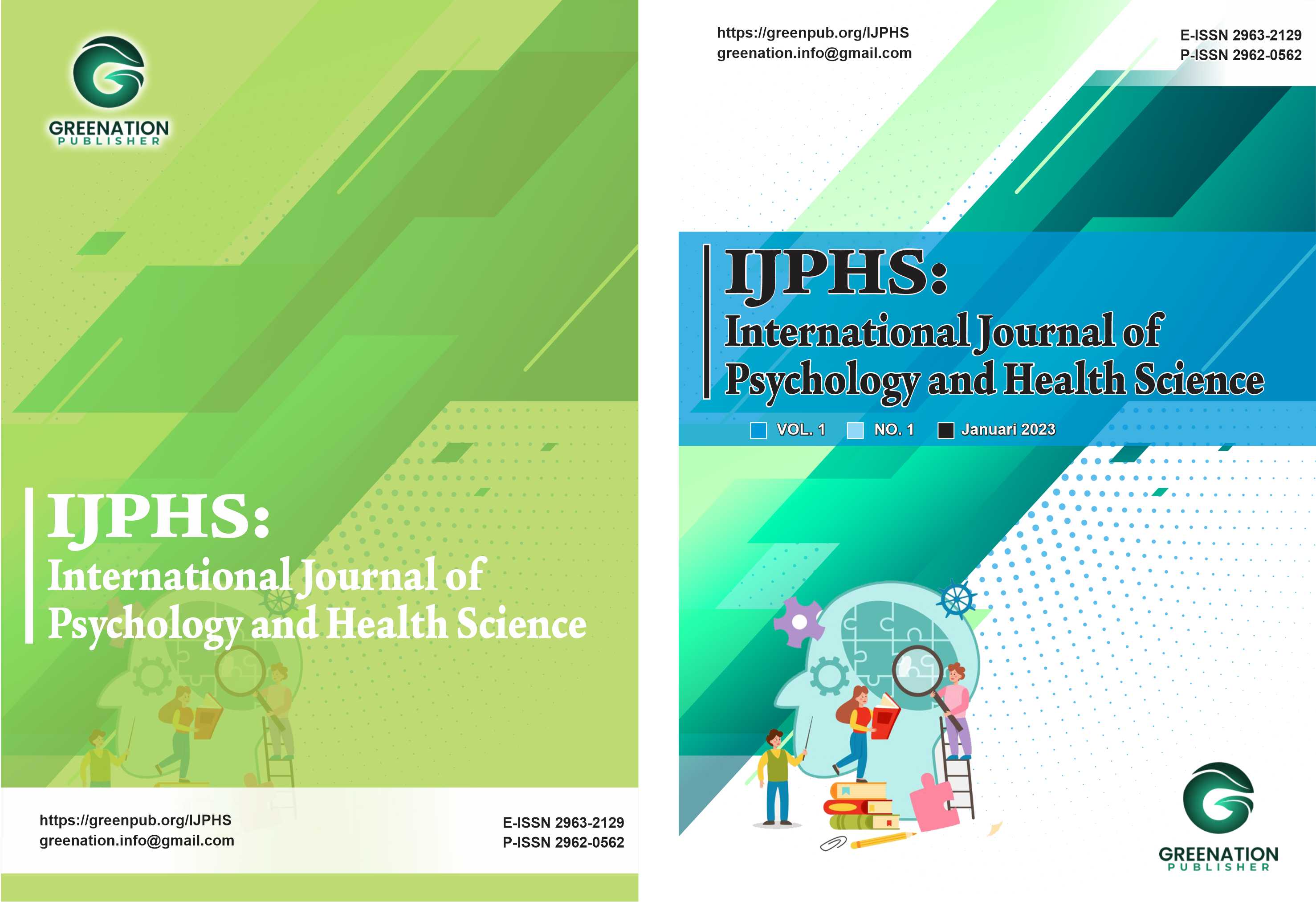The Effectiveness of Group Counseling Intervention for Vocational High School Students with Addictive Behavior to Playing Online Games
DOI:
https://doi.org/10.38035/ijphs.v2i1.472Keywords:
Addictive behavior, Group counseling intervention, Vocational high schoolAbstract
This study aims to determine the extent to which group counseling is effective in handling cases of online game addiction among students at vocational schools. Before being decided whether addicted to playing games, the subjects will go through observations on their surroundings, interviews and psychological tests. The WBIS test and Graphic test are the psycho-test tools in use. The research subjects consisted of three (3) tenth-grade students from a vocational school majoring in Network Engineering. After the examination, the next step is giving the intervention. This study involves an intervention in the form of group counseling techniques regarding the self-management strategy to help overcome the issues. From previous results, changes to the subject are visible. They are getting used to sharpening and effectively managing their skills besides other activities. Hopefully, future research will be able to employ group counseling techniques to other groups using the longitudinal method, which hopefully can explore changes in behavior over a longer period.
References
Chen, H., Zhang, X., Xu, Y., Ren, J., Fan, J., Ma, Z., & Zhang, W. (2019). T-Gaming: A Cost-Efficient Cloud Gaming System at Scale. Transactions on Parallel and Distributed Systems, 30(12), 2849–2865. https://doi.org/10.1109/TPDS.2019.2922205
Dihni, V. A. (2022, February 16). 10 Negara dengan Pemain Video Game Terbanyak di Dunia. Databoks KataData. https://databoks.katadata.co.id/datapublish/2022/02/16/jumlah-gamers-indonesia-terbanyak-ketiga-di-dunia
Erik, S., & Syenshie, W. V. (2020). Hubungan Durasi Bermain Game Online Dengan Kesehatan Mental Pada Remaja Pria. Jurnal Ilmiah Kesehatan Jiwa, 2(2), 69–75. http://www.jurnal.rs-amino.jatengprov.go.id/index.php/JIKJ/article/view/14/13
Jacobs, E. E., Schammel, C. J., Masson, R. L., & Harvill, R. L. (2015). Group Counseling: Strategies and skills (8th ed.). Cengage Learning.
Kamal, N. S. Z., & Wok, S. (2020). The Impact of Online Gaming Addiction on Mental Health Among Iium Students. International Journal of Heritage, Art and Multimedia, 3(11), 01–20. https://doi.org/10.35631/ijham.311001
Ko, C. H., Yen, J. Y., Chen, C. C., Chen, S. H., & Yen, C. F. (2005). Gender Differences and Related Factors Affecting Online Gaming Addiction Among Taiwanese Adolescents. The Journal of Nervous and Mental Disease, 193(4), 273–277. https://doi.org/10.1097/01.nmd.0000158373.85150.57
Mihara, S., & Higuchi, S. (2017). Cross-sectional and Longitudinal Epidemiological Studies of Internet Gaming Disorder: A Systematic Review of the Literature. Psychiatry and Clinical Neurosciences, 71(7), 425–444. https://doi.org/10.1111/pcn.12532
Muhammad Reza, R., & Mulawarman, M. (2021). Efektivitas Konseling Kelompok Online Pendekatan Behavior Teknik Self Management Untuk Mengurangi Kecenderungan Kecanduan Game Online Siswa. Counsenesia Indonesian Journal Of Guidance and Counseling, 2(1), 22–30. https://doi.org/10.36728/cijgc.v2i1.1432
Nadeak, B. (2021). The Impact of Online Game Addiction on the Quality of Student Education During the COVID-19 Pandemic. Jurnal Pendidikan Dan Pengajaran, 54(3), 520–528. https://doi.org/10.23887/jpp.v54i3.35480
Novrialdy, E. (2019). Kecanduan Game Online pada Remaja: Dampak dan Pencegahannya. Buletin Psikologi, 27(2), 148. https://doi.org/10.22146/buletinpsikologi.47402
Nungdyasti, D. R., & Nuryono, W. (2022). Penerapan Konseling Kelompok Perilaku dengan Strategi Pengelolaan Diri (Self-Management) untuk Mengurangi Kecanduan Game Online Siswa Kelas VIII di SMP Negeri 2 Sidoarjo. Unesa, 9(3), 45–54.
Paulus, F. W., Ohmann, S., von Gontard, A., & Popow, C. (2018). Internet gaming disorder in children and adolescents: a systematic review. Developmental Medicine and Child Neurology, 60(7), 645–659. https://doi.org/10.1111/dmcn.13754
Prasetiawan, H. (2016). Upaya Mereduksi Kecanduan Game Online. Jurnal Fokus Konseling, 2(2), 116–125.
Przybylski, A. K., Weinstein, N., & Murayama, K. (2017). Internet Gaming Disorder: Investigating the Clinical Relevance of a New Phenomenon. American Journal of Psychiatry, 174(3), 230–235. https://doi.org/10.1176/appi.ajp.2016.16020224
Rohman, K. (2019). Agresifitas Anak Kecanduan Game Online. Martabat: Jurnal Perempuan Dan Anak, 2(1). https://doi.org/10.21274/martabat.2018.2.1.155-172
Wang, W. C. (2019). Exploring the Relationship Among Free-Time Management, Leisure Boredom, and Internet Addiction in Undergraduates in Taiwan. Psychological Reports, 122(5), 1651–1665. https://doi.org/10.1177/0033294118789034
Downloads
Published
Issue
Section
License
Copyright (c) 2023 Tiara Anggita Perdini, Erdina Indrawati

This work is licensed under a Creative Commons Attribution 4.0 International License.
Authors who publish their manuscripts in this journal agree to the following conditions:
- The copyright on each article belongs to the author(s).
- The author acknowledges that the International Journal of Psycology and Healt Science (IJPHS) has the right to be the first to publish with a Creative Commons Attribution 4.0 International license (Attribution 4.0 International (CC BY 4.0).
- Authors can submit articles separately, arrange for the non-exclusive distribution of manuscripts that have been published in this journal into other versions (e.g., sent to the author's institutional repository, publication into books, etc.), by acknowledging that the manuscript has been published for the first time in the IJPHS.





















